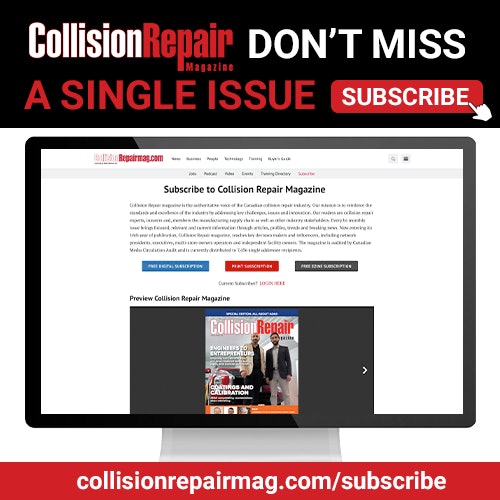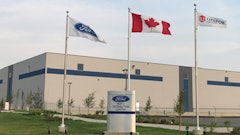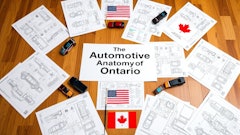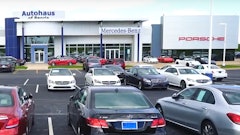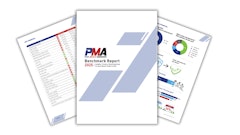
It is 2025, and the planet is in, well, let us say a sickly condition. The sustainability of our industry is challenging, as we use many consumables, products and parts that are detrimental to the environment in many ways. Many manufacturers are trying to find ways to make the industry more environmentally friendly with research and development, but let us all be 100 percent honest: we will never be 100 percent eco-friendly. That said, we need to make a sincere effort if we plan on staying around for a while.
So, what do we do? Do we join some big movement, produce a mission statement, possibly some targets to meet, chip away at a whole bunch of strategies, or do we start simple with one thing at a time? As it has been said, the way to eat an elephant is one bite at a time, not all at once. It is easy to make promises; however, it is far more challenging to maintain them. This is why we take an established practice and tweak its generality by tailoring it to suit our industry. The ‘four’ “R’s” – Reduce, Reuse, Recycle, Repair.
I often see panels, components, and bumpers being discarded because the shop or technician sees no value in repairing something. Not repairing leads to an incredible amount of waste, especially plastic waste. Sure, there are countless arguments against repairing components, such as: it is cheaper to replace them, repairs never work, insurance won’t pay, we make points off parts, and my all-time favourite… “we don’t have time to repair.” Let us break down the excuse train, shall we?
After all, IBIS World states that, as of 2023, there were about 4,500 bodyshops across Canada. Imagine getting each shop to ‘save one component’ a week from landfill. That would be 234,000, or in hyperbole terms, OVER A QUARTER OF A MILLION components a year. One a week, kids; now, doesn’t this sound more doable than a bunch of unattainable mission goals that mean nothing if you cannot meet them? Just one a week.
IT IS CHEAPER TO REPLACE IT
Sometimes, it is upfront, but not always. Take a bumper cover, for example. This may be true if we utilise an aftermarket or recycled part. I have nothing against each of these (as people scream at me); there is a place and time for everything. Countless times, I have heard people complain about both. Aftermarket quality is poor, and recycled parts require too much work to prep for paint.
In some cases, this may apply, but think about the other issues. Downtime: Whenever you order a part, you risk the wrong part arriving, being backordered, or damaged, ergo downtime. Fix what is there, as it is right there and fits. Headlamps are incredibly expensive. Repair the tab. You cannot tell me that a thousanddollar headlamp with a broken tab does not have repair time written all over it. Colour matching issues, blending within a component.
REPAIRS NEVER WORK
Yes, they do. Learn how to do them correctly. Sorry, this must be up there as one of the lamest excuses. With the technology, tools, and products available today, please, repairs work and save a lot of grief. Now, if a tech chooses not to perform the repair properly by ignoring the steps required, that is their bad, and it may be time to find a different line of work, especially if the estimator has put enough time on the sheet to repair correctly.
INSURANCE WON’T PAY
Of course, they will, if you present the evidence correctly; when have you ever found a payee who does not want to save a few dollars? This is known as the ‘shift of the blame.’ In this climate, some payees also have sustainability goals, most of which fall onto your shoulders, so I am confident they will gladly collaborate with you. If it saves a dollar and meets a quota, bingo, you get a Christmas card this year.
WE MAKE POINTS OFF PARTS
Points, a.k.a. money, of course you do. After all, you are in business, and profitability is vital to sustaining your business. You also make money from labour right there in front of you, with no capital outlay. Labour pays the costs of doing business.
WE DON’T HAVE TIME TO REPAIR
Correct, you do not have time to repair because you spend a great deal of time doing operations for which you are not compensated. That is right; all those unaccounted line items are missing. Those take time to complete, and if not accounted for… well, where does the time go? Being fair and accurate with your repair times allows you the time to repair. Accounting for the hours in the day can go a long way toward balancing touch time, cycle time, and WIP. Many of you may be reading this and thinking to yourself or aloud, “I will just use OE parts and forget the repair.” Sadly, you are living in the land of delusion with unicorns, fairies, and pixie dust. The salvage or recycled parts industry in North America is a 32-billion-dollar industry, and the aftermarket parts industry (mechanical) is a whopping 450-billion-dollar industry (stats courtesy of Google). Not going away, ever. I have heard the arguments for and against it and have also lived it; my point is, if you have an issue with either, then repair the OEM component on the vehicle in front of you.
A LITTLE GOES A LONG WAY
In my opinion, and you are entitled to my opinion, a little goes a long way. We can sit here and debate this endlessly; however, I’m not asking you to perform some ritual carbon footprint dance with an engineer’s mathematical equation attached to it, or am I asking you to reinvent the wheel and change all of your procedures. I’m also not asking you to go out and invest a whole pile of money into some program or special ‘Fixal 2000 Dumpster Recycler.’ Remember the beginning of the article? That elephant? Yeah, don’t eat elephants; instead, one repair versus replacement a week can make a difference toward your sustainability and others as well.
The salvage or recycled parts industry in North America is a 32-billion-dollar industry, and the aftermarket parts industry (mechanical) is a whopping 450-billion-dollar industry (stats courtesy of Google). Not going away, ever.


